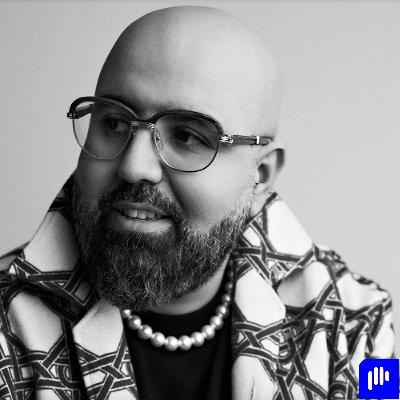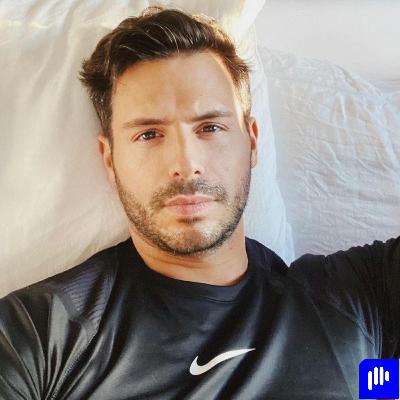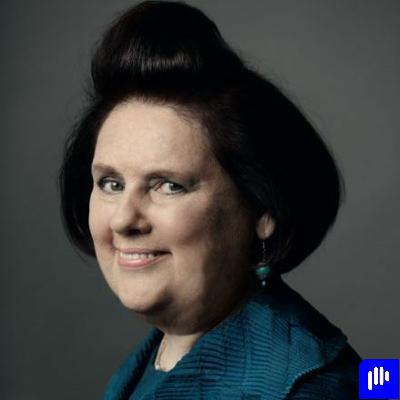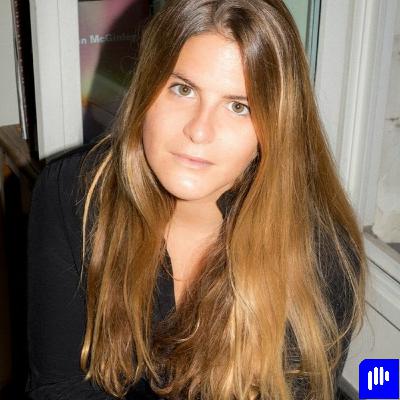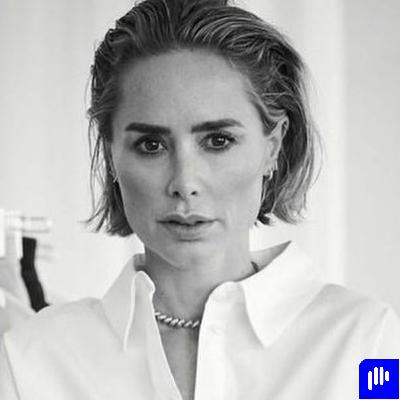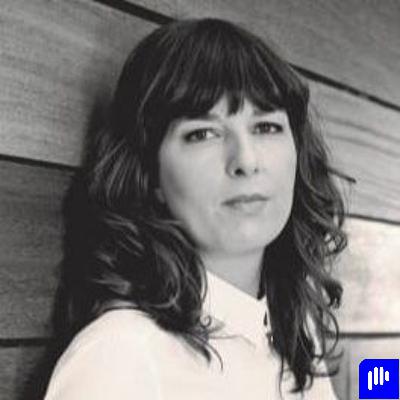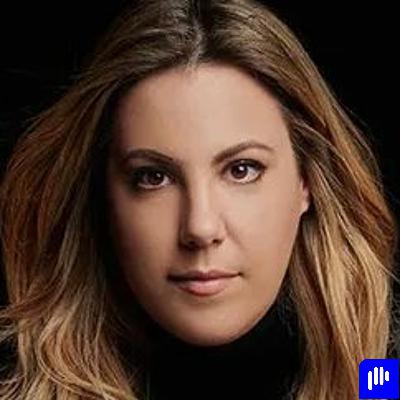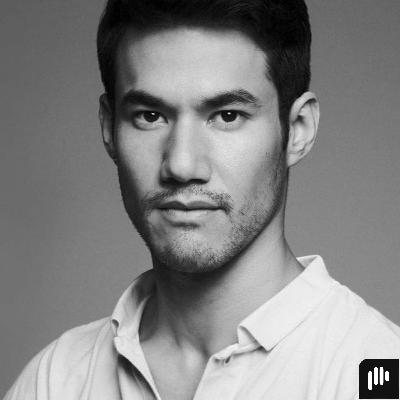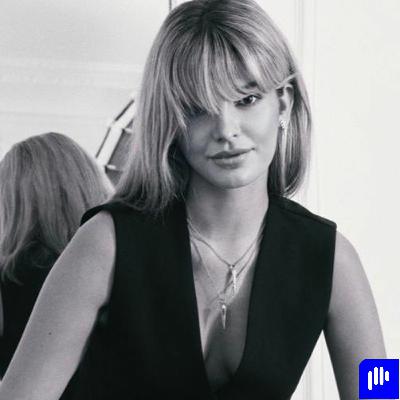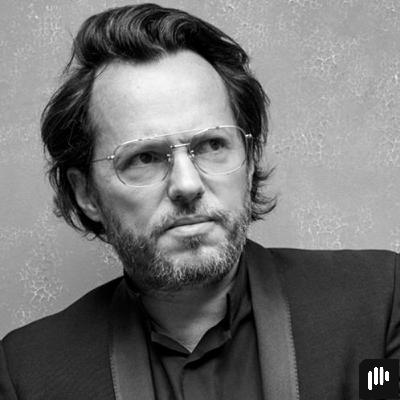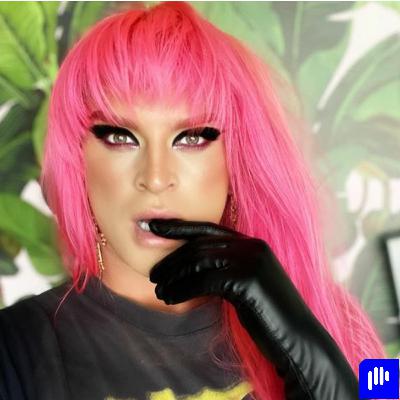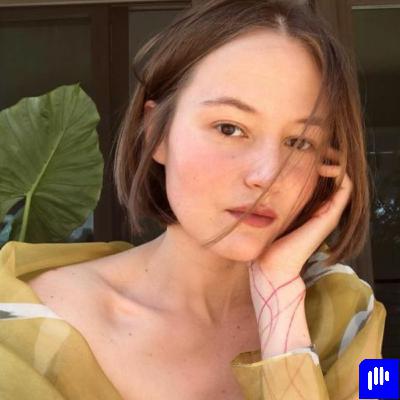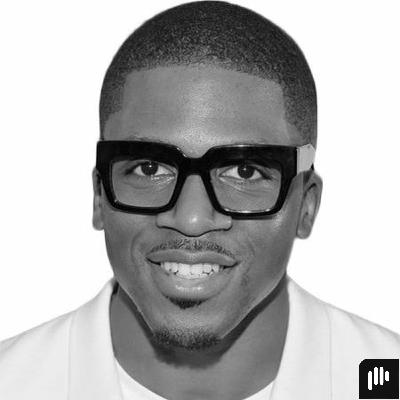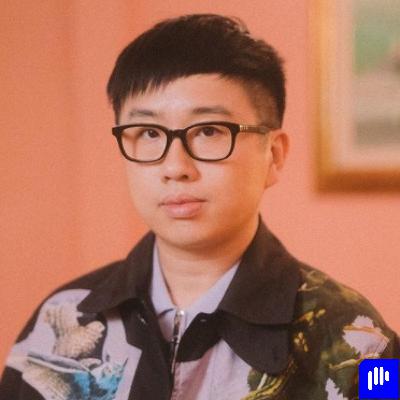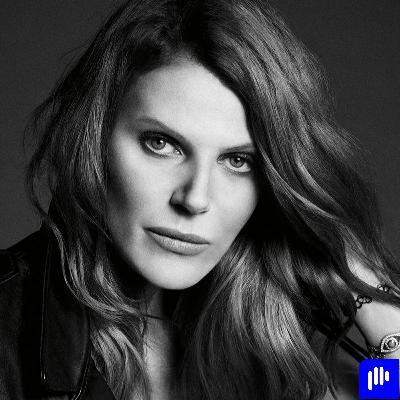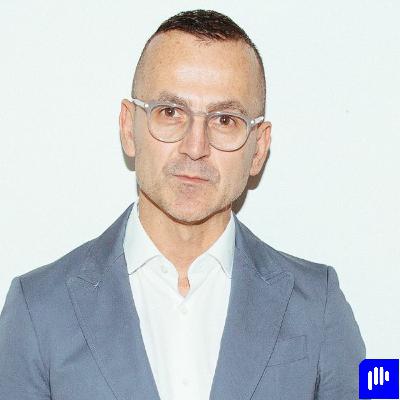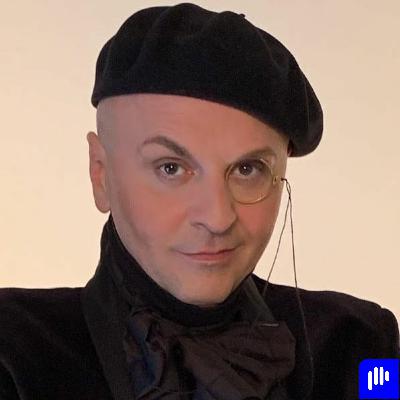Discover Fashion Your Seatbelt
Fashion Your Seatbelt

Fashion Your Seatbelt
Author: Jessica Michault
Subscribed: 59Played: 414Subscribe
Share
© All rights reserved
Description
The Fashion Your Seatbelt podcast gives its listeners the rare opportunity to hear from some of the leading voices working in the fashion industry today. Each podcast is an exclusive one-to-one conversation with a creative who is crafting the future of fashion. Hosted by the renowned and award-winning fashion journalist Jessica Michault, this podcast is designed to take its audience directly to the heart of fashion and discover what makes it tick.
84 Episodes
Reverse
In just seven short years, Charaf Tajer, the founder and creative director of the brand Casablanca, has proven that the fashion world has room for a multitude of sartorial expressions. His unique blend of old-money style, colorful prints, sporty inspirations and architectural touches has managed to recalibrate the language of contemporary fashion. With roots in Paris and Morocco, Charaf’s path to fashion wasn’t linear. He cut his teeth in the nightlife scene as the art director of Paris’ iconic venue Le Pompon, but was also a creative consultant for Supreme, once upon a time collaborated with Virgil Abloh. But was also a co-founder of the streetwear brand Pigalle before launching Casablanca in 2018. A label born not from trend-chasing, but from a desire to distil elegance, memory, and escapism into clothing.Casablanca isn’t just a fashion brand; it’s a sensibility. A world where terry cloth tailoring meets Art Deco curves, and where every collection feels like a postcard from a sun-drenched far-flung destination. But behind the silk shirts and saturated palettes lies a precise vision – one that blends nostalgia with modernity and elevates leisurewear into a refined statement of intent.Now, the brand is entering a new era. With two flagship stores about to open – one in Paris and another in Los Angeles – Charaf is bringing his universe into physical form. It’s a bold move, but then again, Casablanca was never about playing it safe. As you’ll hear, Charaf is a designer who leads with instinct, impeccable craftsmanship, and a sociological eye.
Guillaume Delacroix is a luxury brand whisperer. His entire career, from his early days working at Karla Otto and KCD to his time at Giorgio Armani and Balenciaga, to his current role as the founder and CEO of DLX, he has been helping leading prestige companies craft their narratives in ways that spark conversations, engage the public and create lasting impressions. Guillaume launched DLX nine years ago and since then he has built up a reputation in the industry for both spotting and supporting budding design talents but also for helping more established companies create bold new chapters in their brand strategy. A born storyteller, Guillaume doesn’t limit his clientele to just fashion labels but instead uses his skills to create memorable moments with a variety of companies. He has worked with everyone from Matches, and the famed Samaritaine department store in Paris to hot niche brands like Sophie Carbonari Skincare, the Zurich-based On athleticwear label and the current must-have swimwear brand Hunza G. The common denominator across all these companies is they are cool. And if they weren’t cool, by the time Guillaume works his magic on their brand strategy, communication rollout and event activations…well they damn sure will be.I have known Guillaume for years and considering his impressive track record in the luxury space what still strikes me the most is how humble and self-effacing he is. I mean just Google the guy. For someone who can weave a brand narrative like nobody’s business, there is very little about Guillaume himself online. I hope this podcast will help change that. As he is one man worth knowing. This interview took place in June 2021
I don’t think I have ever been as nervous about interviewing someone in my entire career as I was when my former boss and colleague Suzy Menkes agreed to speak with me for this podcast. I worked side by side with Suzy for 16 years at the International Herald Tribune, which is now known as the International New York Times. Over that period she mentored me, encouraged me and guided me. Shaping my career as I moved from her assistant to fashion writer and finally the Online Style Editor of the IHT. During our time together we experienced so many amazing fashion moments, from the John Galliano, Alexander McQueen and Marc Jacob eras at Dior, Givenchy and Louis Vuitton, respectively, to watching first-hand the rise of LVMH, Gucci Group, Kering and the whole transformation of the fashion industry from artform to billion-dollar luxury business. Not to mention witnessing the debuts of iconic designers like Nicolas Ghesquière, Alber Elbaz, Phoebe Philo, Tom Ford, Stella McCartney, Alessandro Michele, Riccardo Tisci, Maria Grazia Chiuri, Pierpaolo Piccioli and the list goes on. Suzy’s career as a fashion critic spans close to 60 years, starting with her college days at Cambridge where she was the first female editor of the university newspaper. But even before that, as a teenager, she moved to Paris to study at the fashion school that is now known as ESMOD. So her love of fashion as a visual expression of self and society runs very deep indeed. She started her true calling as a fashion journalist at the age of 24. Working under the watchful eye of Charles Wintour, the father of Anna Wintour, who would be an early mentor for Suzy. But Suzy came into full bloom as one of the most respected fashion critics in the world during her 26-year tenure at the International Herald Tribune. Her words were read in the pages of the daily newspaper by hundreds of thousands of readers around the world and eventually by millions once the internet was born. An audience that only expanded with the advent of social media and her turn as Condé Nast’s International Vogue Editor, which saw her words being translated into different languages and her reviews posted on all of the international Vogue websites. She also was the mastermind behind the idea of the modern luxury conference, events that are now commonplace but were brought into being at the IHT, and later continued at Vogue, under her guidance. Suzy is renowned for her honest, fair and insightful writing, and her ability to put fashion into the context of a wider global narrative. Today she runs her own very successful podcast called Creative Conversations with Suzy Menkes, where she continues to interview the leading movers and shakers within the fashion industry. She is still asking the questions every fashion lover wants to know the answers to, but now I am lucky enough to be able to turn the tables on her a bit and ask her a few questions of my own.
From the moment Alexandra Van Houtte first told me about her newly launched platform in 2016, describing it as Google for fashion, I knew she was onto something. Since then TagWalk, the website she founded and is the CEO of, has grown by leaps and bounds and has become a linchpin platform for anyone working in the fashion industry. It is the first runway image keyword search engine in existence. In a nutshell, the former stylist’s assistant created a site that, in just a few simple clicks, makes it possible for stylists to whittle down their sartorial selections for fashion shoots or mood boards from the thousands of catwalk images, lookbooks, and street style shots taken every season. It is also the perfect tool for fashion journalists and editors who are obliged to cull together images for those never-ending “top trend” texts, as the platform allows users to search for images by keyword, colour, season, brand, and more. Tagwalk also offers a variety of features that make it easy to save, share, and organize images.In addition to its popularity with fashion professionals, Tagwalk’s democratic nature has made it a widespread tool for your average fashionista. As it allows visitors to the site the chance to explore the latest trends, discover new designers, find inspiration for their own personal style and create seasonal wish lists of the key pieces she wants to invest in.My conversation with Alexandra really gets into the nitty-gritty of what it takes to get a start-up off the ground, how best to bring on investors and what skill sets a successful leader needs. As always Alexandra is honest and open with her answers, not pulling any punches when it comes to the hard questions about revenue streams, scaling her business and her hiring practices. I came away from our in-depth chat feeling inspired, energized and ready to take on the world. This interview took place in May 2021
Talk about an inspirational story. Paula Wallace, the president and founder of the Savannah College of Art and Design, better known as SCAD had a singular vision back in September of 1978, To create a world-class art and design college that would prepare students for a global workforce. Under her leadership, SCAD has grown from a small art school with 150 students to a global university that spans three campuses around the world with thousands of students enrolled. Over the years it also became recognised as one of the most respected art and design schools, thanks in no small part to President Wallace, who has been the driving force behind its success for 45 years and today is one of the longest-serving women presidents in the history of U.S. higher education.After speaking with president Wallace – and reading her charming book "The Bee and the Acorn" – which recounts the origins story of SCAD, the things that stand out about her are her drive, her sense of curiously, and her overarching desire to make sure her students are at the forefront of creative innovation. She is forever looking for ways for SCAD students, faculty and alumni to connect, collaborate and share their unique knowledge and perspectives. And president Wallace clearly believes that creativity is essential not only for economic growth, but also that artists and designers play a vital role in shaping the world.This interview was recorded in May of 2022.
Fashion entrepreneur Anine Bing is a very savvy business woman who knows how to seize her moment. An early adapter to the social media space, Anine, who is a former model and blogger, was one of the first to translate her online following into a successful fashion brand business. She launched her signature line back in 2012 out of the garage in her home in California. Her collection of chic staple pieces, inspired by her Scandinavian heritage and the casual cool of her Los Angeles home base, were an instant hit. Her “online first” business model, leveraging social media to market and promote her pieces was a new strategy at the time she launched. But today it's a formula that many are emulating. She reverse-engineered her success, starting from the digital space and then moving into the more traditional brick-and-mortar arena. Because today, Anine is sitting on the top of a wardrobe essentials empire. Not only is her collection sold in more than 350 stores globally, she also has over 15 stores located around the world. And Anine continues to expand. She has moved into childrenswear and has launched a successful line of perfumes, not to mention sunglasses, shoes, bags, lingerie, and jewelry. I sat down with Anine in her stylish stand-alone store in the heart of Paris to discuss her impressive success story. I was curious to learn more about a woman who was able to translate her love of timeless style and relaxed elegance into a brand that is helping legions of women look picture perfect for their selfies.
Kaat Debo is the Director and Chief Curator of Antwerp’s famed ModeMuseum fashion museum, better known as the MoMu; a museum that has spent the last three years under renovation. But now, after years of waiting, Kaat is able to reintroduce the world to her second home. A museum with over 35,000 pieces of Belgian fashion in its archives and a unique history that celebrates sartorial storytellers who have helped the world see fashion from new and unexpected angles.But while the MoMu is all about helping the larger world understand the different aspects and influences of the fashion universe, Kaat herself hasn’t been one to share her story much with the public. There is very little information about her online, other than the broad brushstroke that tell us that she studied literature and philosophy in school, that she first joined MoMu as a curator in 2001, she spent a couple of years as the editor-in-chief of A Magazine and then in 2009 took up her top spot position as the director of the MoMu. So I was excited to have an in depth chat with Kaat about what it takes to be a curator, especially one working in the rather new field of fashion curation. I looked forward to learning how her studies, her childhood and her mentors throughout her career shaped her world view and her collaborative nature. And I was interested to hear all about the rebirth of MoMu and how she is planning to make this museum so much more than a shire for clothes; but rather a living, breathing part of the Antwerp cultural community that interacts with the city that surrounds it and helps to nurture fashion lovers of the future.
I’ll never forget the first time I discovered the work of Mary Katrantzou. It was in London in 2008 I believe, and I just happened to wander into a room where a rack of her now-famous perfume bottle printed dresses was on display. On hand was her mother who was proudly showing off the stunning creations her daughter had dreamt up. And Mary’s mom had every right to be proud. Her work was unlike anything else going on in fashion at that time. Advancements in printing and computer technology had made it possible for this young woman to create architectural designs on fluid fabrics. Blending beautifully her passion for interior designs and her studies in the field of architecture at Rhode Island School of Design with her Bachelor of Arts in Textile Design and her Master’s in Fashion from Central Saint Martins. But it wasn’t just the print work that set Mary apart from the pack,it was that combined with her choice of vibrant rainbow colorways. The result was a collection that was the harbinger of the 2010s colorful print fashion revolution.Since she started her signature brand in 2008 Mary, who was born in Athens, Greece, has found a way to modernize trompe l’oeil, help women fall in love with print and color again, and showed the world that clashing aesthetics can be boldly feminine and empowering. This is why powerful women like Michelle Obama, Cate Blanchett, Beyoncé, Lizzo, Jane Fonda, and Zendaya have all flocked to her creations. But Mary’s success goes beyond her ability to reinvent her core design principles every season. She is a very savvy businesswoman who saw early on in her career the power that collaborating with other creatives and brands could have in expanding her reach and name recognition. Her recent partnership with the high jewelry company Bulgari on a line of limited edition bags is a perfect example of this. But so is her work with Victoria’s Secret, Longchamp, Topshop, and Adidas Original. And her recent decision to create the size-inclusive year-round holiday capsule collection called Mary-Mare also is indicative of how Mary is able to deftly read the fashion tea leaves as the industry shifts away from seasonal shows and moves into a space where smaller drops throughout a year feels more in keeping with the times we live in.With over a decade in fashion, Mary Katrantzou is still innovating and challenging herself as a creative, and her devoted clients couldn’t be happier.
Designer Spencer Phipps is a born risk-taker. There isn’t a limb on his body that doesn’t have a scar from one escapade or another - that he jumped into with both feet before asking questions. The man is even missing a significant portion of one of his pinkie fingers from one memorable misadventure. And when it comes to taking risks, Spencer also has no problem doing that in business. It was, after all, an impulse decision to launch his signature menswear brand Phipps back in 2017. When, after having worked alongside Marc Jacobs and Dries van Noten, he found himself looking to make his next move and couldn’t find a fashion house that ticked all the boxes. So instead he decided to start his own. Spencer, who was born and raised in San Francisco and graduated with a degree from Parsons in New York, has over the past four years created for himself a label that scratches a very interesting sartorial itch. His clothing celebrates timeless American wardrobe staples that allude to wide open places, outdoor activities, and manly pursuits. Garments that Spencer has designed so that they revere nature, appreciate the artisanal hand, and seek to leave as little an impact as possible on the planet. While simultaneously his goal is to have them hold a long-term place of honor in a man’s closet, another sustainable pursuit.From its inception, one of the pillars of the Phipps brand has been its commitment to sustainable sourcing and responsible manufacturing. For the designer, this means both leveraging the latest technology in terms of construction and production, as well as fine-tuning a list of transparent, sustainable suppliers that he works with regularly. His fervent commitment to crafting clothing that makes an impact but doesn't leave one on the Earth is one of the reasons why Spencer was an LVMH prize finalist in 2019 and, after just two seasons, the brand was added to the official Paris Fashion Week: Menswear calendar. But if I am being completely honest, on top of all the reasons I have already mentioned, Spencer is just a really cool guy that you always have fun hanging out with, as you will discover yourself with this interview.
You get the sense, when you speak to designer Joseph Altuzarra, that he is that perfect combination of creativity and commerce. That as a French American, he has an innate sense of style coursing through his veins. While his American roots give him savvy business sense and a “pull yourself up by your bootstraps” attitude. From a young age, Joseph - who was raised by his French Basque father and Chinese- American mother - has always believed in the transformative power of fashion. A self-taught designer who got a Bachelor of Arts degree in Art and Art History from Swarthmore College, his approach to this sartorial art form has always been focused on how the clothes someone chooses to wear tell a larger story. It can be the story of who that individual is or it can be one about the person they hope to become. That clothing telegraphs a message to the world about how we see ourselves.As luck would have it, Joseph landed an internship in the design studio of Marc Jacobs in 2004 and he went on to work with Proenza Schouler before getting tapped by Riccardo Tisci to join him in Paris and become the designer’s first apprentice during his tenure at Givenchy. Then in 2008, Joseph returned to New York to strike out on his own. And from the moment he launched his signature brand, his work stood out from the other fashion collections being shown at New York Fashion Week. His sexy, sensual aesthetic that wove together elements of his multicultural heritage into his designs did not fit into the American Sportswear approach of many of his peers at that time. But standing out from the crowd served Joseph well. He was honored with the CFDA/Vogue Fashion Fund Award in 2011 and the CFDA Swarovski Award for Womenswear Design in 2012. He was then named the winner of the US Woolmark Prize in 2013 and in 2014 he nabbed the CFDA Womenswear Designer of the Year Award.Suffice to say, Joseph, with his accolades, his brand collaboration with Target, and his stint as a judge on the first season of the Amazon Prime television series “Making the Cut” turned Altuzarra into a household name. And now with his label well established in the fashion industry, Joseph is thinking about where he wants to take things from here. In our conversation, we discuss what the future holds for this talented designer as he looks at his career from a post-pandemic perspective. A viewpoint that has been changed by the arrival of his daughter Emma and a desire to lead a balanced and intentional life. But one that will always have fashion at its heart.
I wanted to interview Alisa Volskaya, the founder of the public relations firm AVEC, for a few reasons. First of all, every time I would bump into her at a fashion show or event, our conversations about the state of the industry, future trends, and fashion in general always went well past surface chit-chat. Secondly, I was impressed by her drive and third, it just takes a lot of guts to launch a PR company during a moment when that field is in the middle of such a paradigm shift. Not to mention doing it in 2020, the year the world stood still.Alisa started out her career working at Condé Nast International in Paris and was in charge of the fashion publishing house’s digital projects and partnerships. In 2015, she became the Executive Director at Naked Heart France, a charity founded by the top model and philanthropist Natalia Vodianova, where she was in charge of international fundraising and partnerships. Then just five years later, she decided to go out on her own and launch her firm AVEC. Alisa’s PR philosophy is right there in the name of her business - AVEC. She sees the work that she does for brands like Chaumet, Ralph Lauren, Chopard, and Balmain as a real partnership. One where her role is to be there with the companies every step of the way in their strategy journey, from conception to completion. But what exactly does that mean in the post-pandemic, social media-centric metaverse world we now inhabit? Alisa, just like every other time I have spoken with her, had some insightful and sometimes surprising answers.
Consummate creative Alexandre de Betak is an industry touchpoint in the world of fashion. He is behind some of the most era-defining fashion shows, events, and exhibitions of the past three decades. The proverbial man behind the curtain, Alex has brought to life the visions of designers as diverse as Raf Simons, Michael Kors, and Gabriela Hearst, and brands big and small, from Dior and YSL to Jacquemus and Rodarte. Throughout our fascinating conversation, we talk about where the spark of creativity comes from, how to keep those creative juices flowing, and how Alex is instilling in his own children that desire to experiment, to explore, and to see the world, and what it could be from different perspectives. Perspectives that will help those around them also experience a moment in new ways that challenge, delight, and mesmerize.
Fashion designer August Getty is a gentle soul whose goal is to create a fully inclusive, fully immersive sartorial world where everyone is welcome. All that is required is that you be yourself 100% both in the real world in one of his one-of-a-kind couture creations, or in the digital sphere where he recently created a whole new virtual universe he has baptized Tinitus.It is inside Tinitus that August brought to life four digital gowns for this past haute couture season, with 3D imagery so detailed it probably caused some of the biggest couture houses to turn green with envy. The designer spent six months creating these three-dimensional virtual gowns and he intends to expand on this concept with the upcoming couture shows this summer.Based in Los Angeles, the August Getty Atelier has become a niche go-to fashion house for celebrities like Miley Cyrus, Cher, Katy Perry, Lady Gaga, Zendaya..and I could go on. All of them looking for outfits that are bold, unexpected, and wholly original for their galas, red carpets, and event outfits, because let's get one thing clear, August designs ensembles for maximum impact. For August, who is an autodidact designer, the goal of fashion, which he says he has loved all the way back to “when he was in the womb” is how transformative it can be. It can make you brave and it can give you the strength to be the person you want to become. Turn fiction into reality with fashion. That is what makes it so magical and so powerful.
Photographer Sasha Samsonova is generating quite a buzz with her striking images of women who are comfortable in their own skin and unabashedly sexy. A female Helmut Newton, Sasha is all about celebrating the beauty and strength of the women who stand before her lens. Born and raised in Ukraine, Sasha is an autodidact photographer who was already shooting for Harper’s Bazaar by the time she was 17 years old, having picked up a camera after her plans to become a professional ballroom dancer fell by the wayside. But her innate understanding of how the body can express emotion in the way it moves has had a direct impact on both her photography and the films and videos she is now directing in Hollywood. Sasha has worked with celebrities like Kylie Jenner, Lili Reinhart, Khloe Kardashian, Emma Roberts, and Kate Bosworth, her images have been featured in the pages of Vogue, L’Officiel, Elle, and Playboy and she has collaborated with brands such as Google, Fear of God, and Revlon. When you see Sasha’s work it’s all about sensual strength. And when you listen to her speak, you know that her goal in life is to make women feel as powerful as possible. And she has the photos to prove that she is doing exactly that.
Romeo Hunte first registered on my radar in a way that I have never connected with a young designer before. He sent me a DM on Instagram during the global lockdown last year and suggested that the two of us jump on an Instagram Live to talk about the state of fashion in the throws of a global pandemic. And that is exactly what we ended up doing.I am telling you this story because I think it perfectly illustrates who Romeo is. He always takes the initiative, he has a clear vision of where he wants his brand and his career to go. And he is open to experimenting, trying new things, meeting new people, and just seeing how the creativity all comes together to build something new and engaging. Now just a bit of background about Romeo before we jump into our podcast interview. He grew up in Brooklyn, New York, and turned down a full athletic ride for his skills in track and field to instead attend the Fashion Institute of Technology to pursue his dream of becoming a fashion designer. He launched his brand in 2014 and then he hustled. Using his contacts via his freelance styling gigs and his full-time job as a personal shopper at a luxury retail store he was able to build both momentum and a buzz for his signature label.And then it wasn’t long before Romeo found his statement-making outerwear on the likes of Beyonce, Dwayne Wade, or Tobias Harris. Zendaya was a very early adopter of his colorful ensembles, and Michelle Obama has been spotted wearing his tailored blazers and denim hybrid jackets. Step by step, Romeo has been building a reputation for making cool, reconstructed pieces that take the best elements of different items of clothing and creating CRISPR-like hybrid pieces designed to get noticed. One person that early on took a shine to Romeo’s designs was Tommy Hilfiger. The two designers have built a strong relationship over the years, and Tommy recently gave Romeo free reign to forage through his archives. Romeo took it upon himself to revisit and reinvent some of Tommy’s iconic designs and give them a new lease on life. This clever collaboration is just the beginning of the long road ahead for Romeo in fashion.
Declan Chan is one of those front-row fashion fixtures that you always keep an eye out for at the shows. A fashion editor and stylist by trade, Declan has also become a favorite subject for anyone who loves to appreciate those who take the time to put together a look. Declan always looks put together, but with flare. And his outfits are just as eye-catching as the spreads he creates in the pages of publications like Vogue Hong Kong, The New York Times, the South China Morning Post, and Men’s Uno Hong Kong, or the campaigns he crafts for companies like Calvin Klein, Cartier, Estée Lauder, and Lane Crawford. Ostensibly, Declan is based in Hong Kong, but if you follow him on Instagram, his real home, up until the pandemic, seemed to be on an airplane...or a series of hotels... as he is continuously crisscrossing the world to oversee a fashion shoot, attend a fashion week, or just be a part of all of the “you had to be there” fashion happenings. What I like most about Declan, besides his style, is his honest, frank, and often funny reflections on fashion in general and fashion shows in particular. I always look forward to checking in with him at least once a season to get his thoughts on what he saw - the upcoming trends - and even which pieces he has already put a personal order in for. Declan’s point of view is important because he has become one of the central go-betweens linking the Chinese consumer to the fashion catwalks. Communicating via his editorials a sartorial message that will shape how the Middle Kingdom sees a collection, understands a designer, and ultimately, which brands they decide to invest in.I know that once you have listened to this podcast you will be as enchanted by Declan as I am.
It is hard to miss Pascal Morand when he arrives at a fashion show. Not only does he tower above most of the guests, but he is also always surrounded by the who’s who of the industry, designer hopefuls, and fashion journalists who all want to bend his ear about one aspect or another pertaining to the business of fashion. But that is what you sign up for when you are the executive president of the Fédération de la Haute Couture et de la Mode.However, Pascal wears his title with the ease of someone who has spent years in the industry and knows it well. Having had paid his dues with tenures at both the Institut Français de la Mode (IFM) and Ecole Supérieure de Commerce de Paris (ESCP), not to mention his time as the deputy director-general of the Chamber of Commerce and Industry for the Paris region before his current job – shaping the future of French fashion. His years teaching and his studies in Organisational Sciences at the University of Paris Dauphine have come in handy at the Fédération where he is both helping to nurture the next generation of designers who dream of showing their work during Paris Fashion Week, and wrangling those current calendar members who are always angling for a better spot. And Pascal’s love of innovation and technology has very much come in handy over the past year when, almost overnight, all of the collections - from menswear and womenswear to haute couture moved from real-world runway shows to fully digital experiences that only exist online, on a platform that the Fédération built up to frame the virtual shows as well as enrich them with added content. Including exclusive designer interviews, round table discussions about hot button fashion topics, and in-depth looks at the savoir-faire that is the beating heart of French fashion.I spoke with Pascal before the Fall/Winter 2021 menswear collections got underway in January about how he sees the fashion week evolving in the future and, as always when I speak with Pascal, I was blown away with his overarching vision when it comes to the fashion industry. It is one of the reasons why I am often part of the crowd that tries to catch his attention at the shows.
Anna Dello Russo is a fashion force of nature. To the uneducated, she is the eternal star of the concrete catwalk. The colorful, upbeat and sometimes outrageous outfits she wears to the fashion weeks she attends are always the must get shots for the photographers that stalk the streets outside the show venues.But for those who know Anna, she is much more than a fabulous clothes horse. She is one of the industry’s leading stylists and art directors. After getting a master’s degree in fashion at the Domus Academy in Milan, Anna had the good fortune, right at the start of her career, to cut her teeth at Vogue Italia under the watchful eye of its longtime editor-in-chief Franca Sozzani. There she spent 18 years honing her skills and worked alongside all of the biggest photographers of the 80s and 90s. Then in the year 2000, she was tapped to become the creative director of L’Uomo Vogue before going out on her own as a creative consultant in 2006. She is also currently the fashion editor-at-large for Vogue Japan, creating one iconic cover image after another for the magazine.Throughout her career, Anna has been paying forward the generosity and mentorship she received from Sozzanni to up and coming stylists. Many of her former assistants have gone on to their own successful careers in the industry after being trained up by Anna. And three years ago she took the concept of giving back even further by becoming the international brand ambassador of the Istituto Marangoni, teaching its students from around the world about how to telegraph their sartorial ideas through visual storytelling that both grabs the viewers’ attention and makes them dream.Full disclosure, I have known Anna for years and she is hands down one of the most positive, heartful, and generous people working in fashion today. You can always count on Anna to find a way to make any situation fun and unforgettable.
Steven Kolb and I have traveled in the same circles for years. But until this podcast, we never really had the chance to have a deep dive discussion about life in general and more specifically, life in fashion. As the CEO of the CFDA, Steven is basically the ringmaster of New York Fashion Week, so it is a bit difficult to pin him down. But what I have always appreciated about him is how level headed he is. Even in the eye of the fashion tornado, you can count on Steven to be matter-of-fact with his insights, feedback, and suggestions. Over the years, he has been a driving force behind some of the CFDA’s more important projects, from the CFDA/Vogue Fashion Fund and the CFDA Fashion Incubator program to the CFDA Fashion Awards. Not to mention the many initiatives he, and by extension, the CFDA, have supported over the years that shine a light on issues such as better representation, equity, and inclusivity within the fashion industry. Just this year Steven launched RUNWAY360 in reaction to the COVID-19 pandemic to create a digital platform for New York fashion designers to show content-rich online presentations of their collections when social distancing made in-person fashion weeks a non-starter. And at the same time, he flipped the script on this year’s CFDA/Vogue Fashion Fund turning it into a fundraiser called A Common Thread to aid those fashion businesses that have been most impacted by the COVID-19 pandemic.In this podcast, Steven and I talk about where he sees fashion weeks headed in the future, how his outsider’s perspective has helped him be even more effective as the CEO of the CFDA, and what his favorite part of his job is. Also do listen all the way to the end of this podcast because Steven’s answers to my 5 generic fashion questions are just fantastic.
Creative director and stylist Sascha Lilic is a fashion month’s fixture. His distinctive look, of a beret and monocle, always makes him easy to spot at a show. You can also always count on Sascha to give you a great sound bite about what he thinks of a presentation, and it’s often something that will make you laugh out loud or blush. Maybe it was all those years working alongside his mentor, the iconic photographer Helmut Newton, who was also known not to mince words, that formed Sascha’s talent for finding the perfect bon mots.But to be fair, Sascha, who was born in Yugoslavia and grew up in Germany, was always fascinated by the world of fashion and its fundamental transformational properties. By the tender age of 16, he was already working as a hairdresser and make-up artist, before he finally got his first break as a stylist. And once he did, he never looked back. Sascha became the fashion & creative director of influential 90s era SPOON magazine before moving on to become the editor-in-chief of ABOVE magazine, which Sascha launched in 2004 and sold for a pretty penny right at the height of excess before the global recession of 2008. And since then, he has been using his talents on all sorts of different fashion fronts, as a stylist, fashion consultant, creative director...you name it...if it has to do with fashion and creativity, Sascha is your man. A claim that is backed up by the laundry list of publications, photographers, and celebrities he has worked with. Which include, but not limited to Vogue, GQ, Vanity Fair, Interview, V Man, Harper's Bazaar, Esquire, Glamour, LʼOfficiel, and Grazia. And besides his longtime collaboration with Newton, Sascha has also teamed up with other leading photographers like Ellen von Unwerth, Norman Jean Roy, and William Klein...and I could go on. His visual eye has transformed everyone from Lana del Rey, Jessica Chastain, Sienna Miller, Rihanna, Lily James, Diane Kruger, Keira Knightley, Lea Seydoux and I could go on and on. So let’s just say that Sascha has quite a lot of great fashion stories to tell. Which is why I wanted to jump on a zoom call with him for this podcast. To tell us all about his extraordinary life, lived to the fullest, in fashion.
Comments
 United States
United States

